Getting some CT Grown products into your daily diet is easier than you might think. Here are 10 ways you can include CT Grown on your plate each day.
1. Look local for your morning eggs
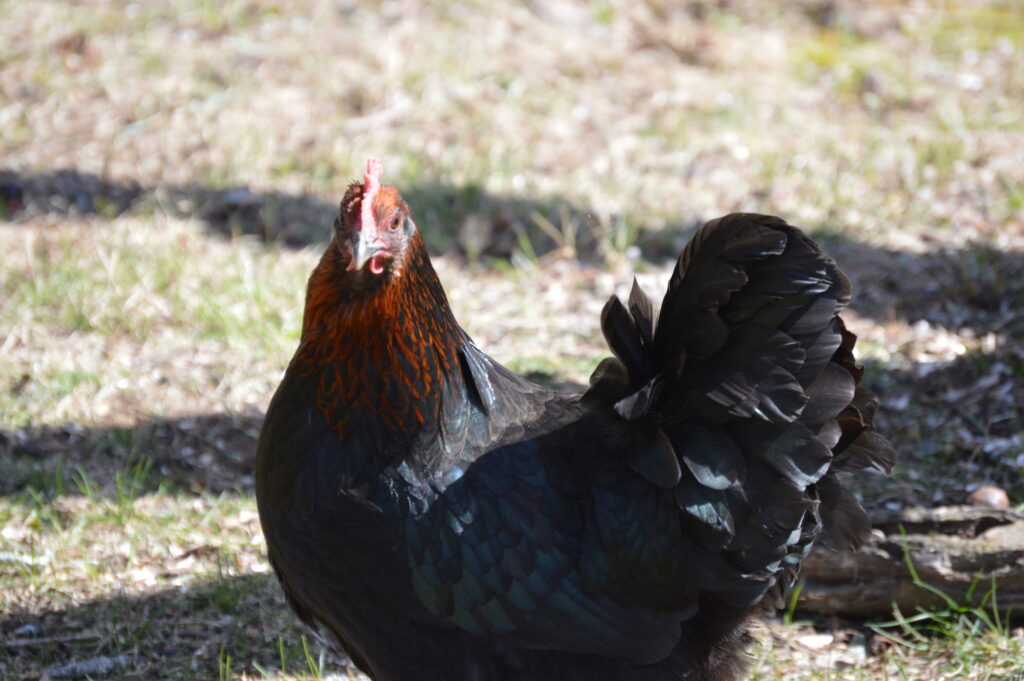
If you like to cook up an omelet to get you going in the morning, take a look around your neighborhood to see where you might be able to pick up some fresh eggs. Many farms keep small flocks of chickens, and offer eggs at their farm store. Connecticut also has several large egg producers, selling products under brands like Eggland’s Best, The Farmers Cow, and Hillandale Farms.
2. Sign up for a dairy delivery
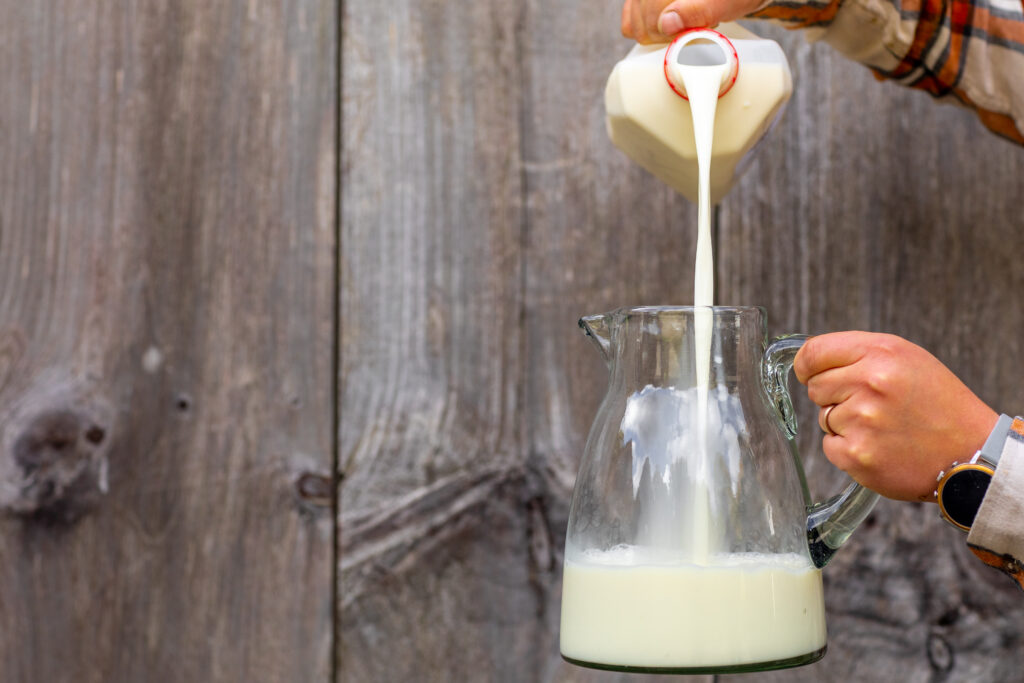
Several Connecticut dairy farms are working to bring the milkman back to our neighborhoods. You can find options for delivery services that bring fresh supplies of milk, yogurt, and cheese right to your doorstep. Some farms pair this offering with other CT Grown products, making it even easier to get your groceries and support your local farmers.
3. Pack a CT Grown apple for lunch
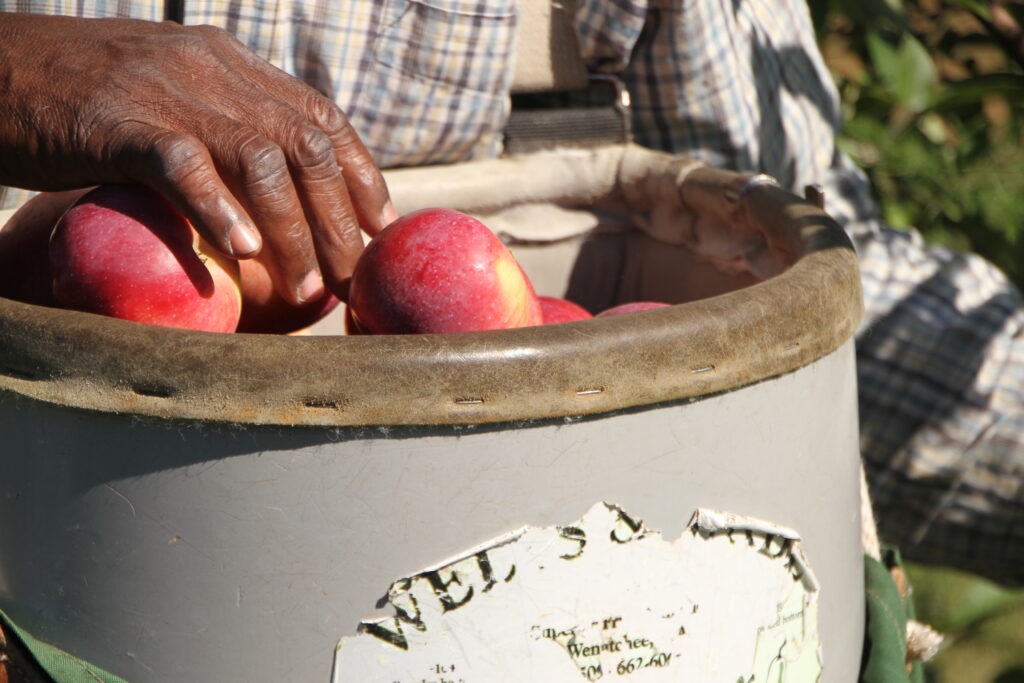
More than 2,000 acres in Connecticut are dedicated to growing apples, and bountiful harvests of this fruit are readily available from July to October. Visit an orchard to pick your own apples, then pack an apple with your lunch each day. Since apples store well, you can continue to find fresh apples from orchards throughout the winter and into the early spring.
4. Look for locally sourced items at your favorite restaurant
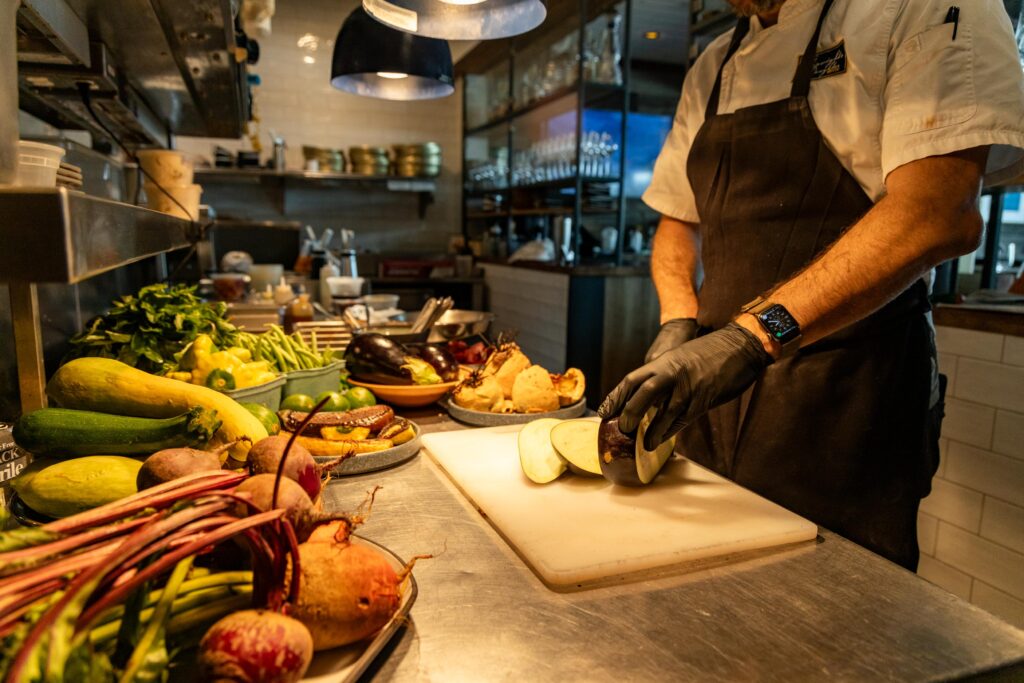
Several restaurants in Connecticut commit to partnerships with local farms to acquire seasonal items and staples such as dairy, meats, and shellfish. When local food is on the menu, you can enjoy fresh, seasonal items and discover delicious new varieties and cuts.
Be sure to check out CT Farm-to-Chef Week from September 9-16, 2023. This annual occasion showcases venues that use CT Grown food for their dishes and beverages, giving you a chance to discover new eateries with a farm-to-table commitment.
5. Find CT Grown when grocery shopping
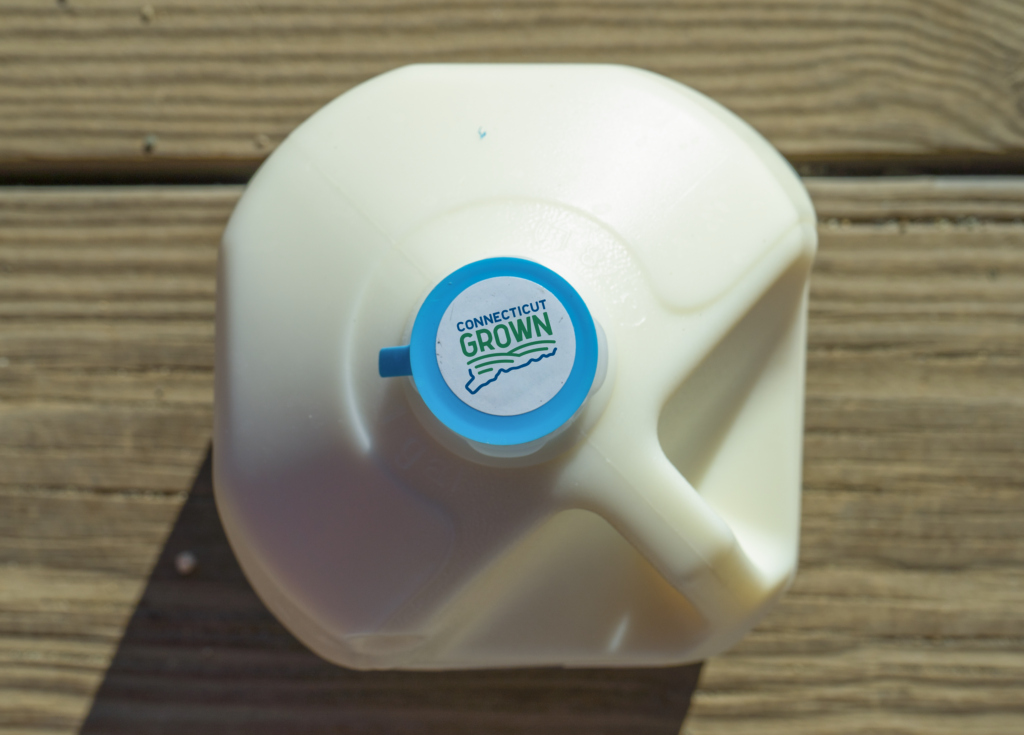
Connecticut farms often partner with wholesalers and retailers to make their products available at local grocery stores and food co-ops. Look for the CT Grown logo to find food items that are produced locally. Some stores also feature special displays to showcase value-added products from Connecticut producers, such as honey, sauces, maple syrup, and salsas.
6. Make a local farm your meat market
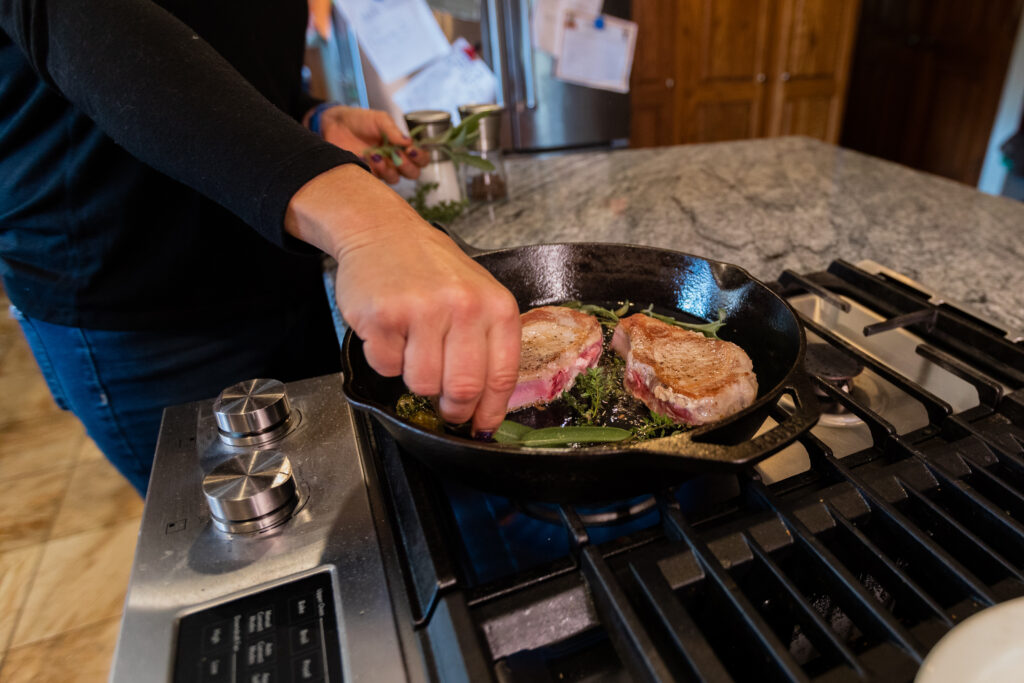
Connecticut farms raise a wide variety of meats, including beef, pork, chicken, turkey, and even specialty items like bison and emu. A visit to one of these farms not only lets you discover new cuts, but also gives you the option to purchase large shares of meat to freeze for future meals.
7. Stock up on local wines

Connecticut is home to 45 licensed farm wineries featuring scenic vineyards and beautiful tasting rooms. In addition to picking up local options when shopping for wine, you can also sign up for a membership, wine club, or Adopt-A-Vine program that lets you regularly pick up new vintages or enjoy discounts when you visit a winery.
8. Use pick-your-own for your baking needs

Pick-your-own farms give you a chance to get out in the fields and orchards to select fresh seasonal items like apples, berries, peaches, pears, and pumpkins. Farms invite visitors to purchase these products in bulk, and you can put these larger quantities to good use with mouthwatering baking options like pies, breads, and muffins that use locally sourced ingredients.
9. Become a regular at the farmers’ market

By visiting a farmers’ market each week for some of your grocery shopping, you can discover new varieties of produce, custom cuts of meat, homemade sauces and jams, and much more. You can also talk directly with local farmers to get advice on how to best prepare and store your food.
10. Start researching CSAs now
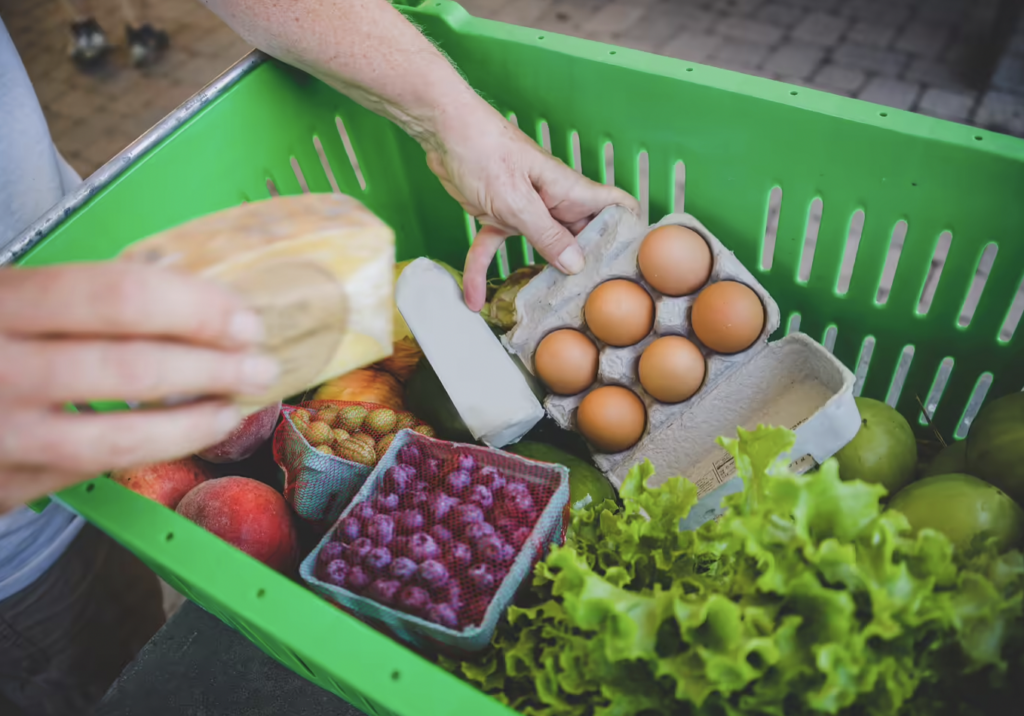
Many farms participate in Community Supported Agriculture (CSA) programs, where you purchase a portion of a farm’s harvest in advance and regularly pick up shares of fresh produce during the growing season; CSAs are also available for products like flowers, meat, and cheese. Farmers begin welcoming sign-ups for CSA programs at the beginning of the year, but you can start looking into options near you to find one that fits your needs.
It’s time to take the “Kiss the Cook” apron out of hibernation, check your propane or charcoal supplies, and get ready for a season of barbecuing. The sizzle of food on the grates, the hearty flavors of grilled food, and the joy of cooking outdoors all come together for a truly enjoyable experience.
Whether you’re hosting a party or just making a meal for your family, Connecticut farmers and producers can supply you for your next cookout — and many more to come. Here’s how CT Grown can make for a tastier grilling experience.
CT Grown grilling meats
Connecticut farmers may specialize in a single type of livestock, or they may raise several types of animals. Check out the farms around you and you’ll find beef, chicken, pork, turkey, and lamb, all raised with the goal of producing high-quality meats.
You may be surprised to discover that Connecticut has some unconventional livestock producers as well. A handful of farms in the state raise bison and emu, which are touted as having lower fat than traditional meats.
Most livestock producers in Connecticut sell directly to the consumer, and they often have special promotions or services to cater to these customers. You may discover discounts on bulk purchases at the start of the summer, giving you an affordable way to stock up on a larger quantity of meat for the season, or giveaways and bonus products available with certain purchases. CT Grown farms may also offer delivery services to bring meat directly to your doorstep, or convenient pickup options at their farm store or a nearby farmers’ market.
Meat has become a popular option in Community Supported Agriculture (CSA) programs, with many livestock producers either partnering with other farms or running their own program. CSAs allow you to purchase a share of the farm’s product in advance, then regularly pick up a selection of meats over the course of several weeks.
If you’re looking for more variety in your meals, check out the meat sampler boxes that many Connecticut farms have started to offer. These boxes contain different cuts such as roasts, steaks, burgers, and short ribs, allowing you to experiment with different recipes.
Ordering CT Grown meat in bulk
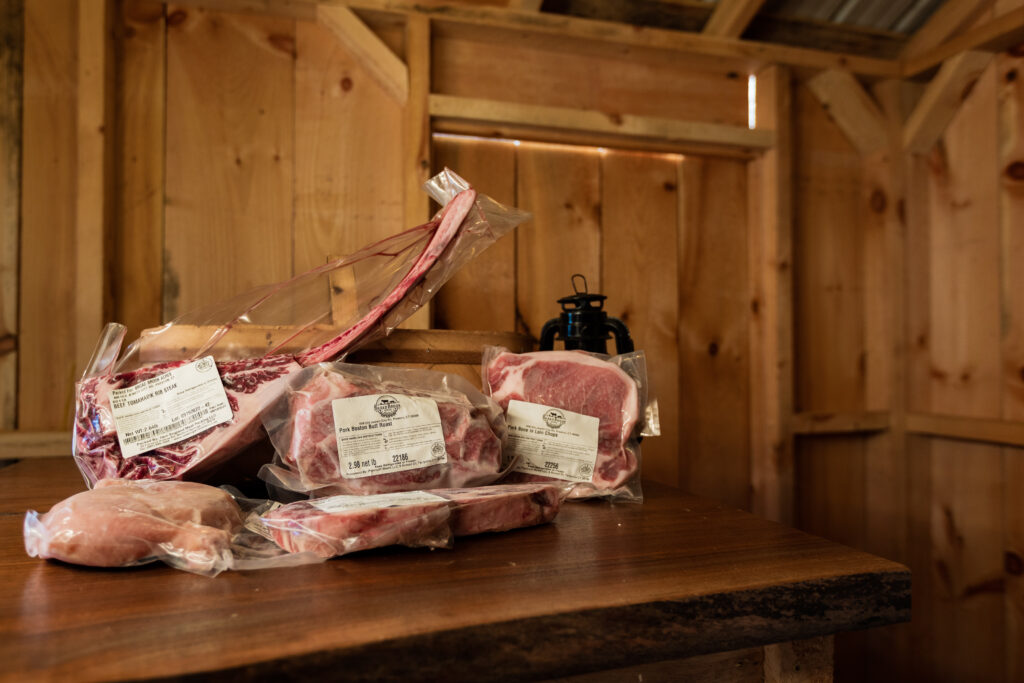
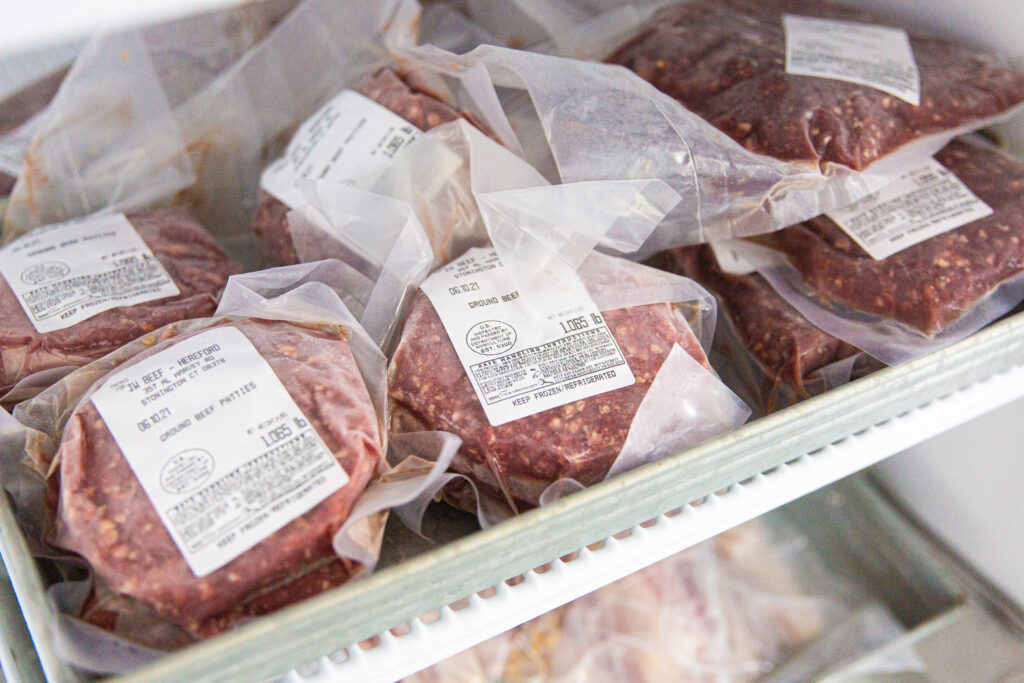
For grilling enthusiasts interested in purchasing more local meat, Patty Taylor of Devon Point Farm in North Stonington says the first thing you should do is get a good freezer.
“When people invest in a freezer, they enable themselves to buy in bulk from local farmers,” she says. “They save money from all the driving to stores and paying increasing grocery store prices, and they get the convenience of walking to their basement or garage to make a dinner barbecuing selection.”
Unlike shopping at a grocery store, a visit to a local livestock farm allows you to order portions such as a whole, half, or quarter cow. Some portions will yield hundreds of pounds of meat — enough to keep you supplied through the grilling season and beyond. You can also take advantage of services like custom butchering to select your preferred cuts.
To store such a large quantity of meat, Taylor recommends using heavy-duty milk crates or laundry baskets in a chest freezer so that cuts of meat can be easily organized and lifted out. She says upright freezers should have an organizational system that makes the best use of available space, such as boxes that fit on the shelves and have shallow cuts to access their contents
Whole and half pigs are also available, with whole pigs typically providing more than 100 pounds of pork. Some farms give you the option of renting cookers to prepare this meat, giving you the opportunity to hold a pig roast when hosting a large party.
These roasts are popular from May into fall, so be sure to reserve the equipment several weeks before your occasion. You should also provide this advance notice when making a bulk order of meat.
Where can I find CT Grown meats?
Check out the CT Grown map to find a livestock producer near you. There are also many locally owned meat markets and butcher shops that partner with CT Grown farms.
CT Grown seafood on the barbecue
You don’t just have to limit your barbecue to land-based items. Connecticut has a thriving aquaculture business, with local fishing boats hauling in catches of fish, oysters, clams, lobster, squid, scallops, mussels, crab, and more from Long Island Sound and the Atlantic Ocean.
Thicker, stronger cuts of fish can be grilled directly on the grates. More delicate filets should be wrapped in tinfoil before grilling, or prepared on a cedar plank to add a smoky flavor.
Shellfish can also be cooked on the grill, and this method is particularly useful when preparing oysters. Instead of the lengthy and sometimes complicated process of shucking with a knife, grilling causes oysters to simply pop open once they’re heated enough.
Fish markets throughout Connecticut can keep you supplied with fresh, locally caught seafood. Stonington Fresh, a program of the state’s only commercial fleet, maintains a listing of retailers, wholesalers, and other partners who carry the latest catch.
Grilled vegetables and fruits
Reserve some space on the grill for CT Grown vegetables. Cooking veggies on the grill will soften them up, give them a smoky flavor and crispy edge, and help them retain more nutritional value compared to cooking methods like steaming or frying.
To start the grilling season, you can wrap broccoli or asparagus in tinfoil with a light seasoning of salt, pepper, oil, and garlic. Summer squash such as zucchini can be cooked directly on the grill.
Throughout the harvest season, you’ll be able to pick up fresh CT Grown vegetables that also taste great when grilled. Some examples include corn, peppers, onions, winter squash, mushrooms, brussels sprouts, cabbage, eggplant, and potatoes.
Many local fruits also grill well, with the heat caramelizing their sugars and enhancing their sweetness. Try it at your next barbecue with seasonal options like apples, nectarines, peaches, pears, plums, or watermelon.
Fruits and vegetables can easily be paired with local meats on kebabs. You can also serve them as is, or chop them up to mix into other dishes such as pasta salads.
CT Grown barbecue sauce
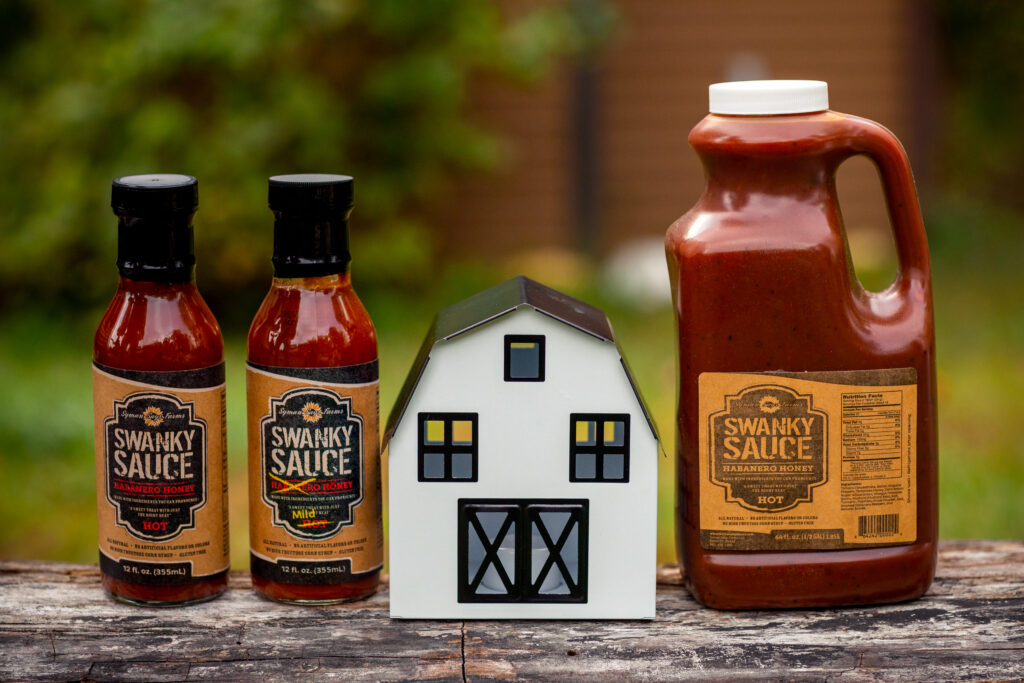
Visit a farm store, farmers’ market, or local retailer and you’ll discover barbecue sauces made right here in Connecticut. This type of value-added food is popular among CT Grown farmers, since it allows them to make use of bountiful harvests or unsold vegetables that would otherwise go to waste.
Barbecue sauces are made using local ingredients such as peppers, maple syrup, garlic, onion, and tomatoes. It’s a great way to support your local farm while also adding a little zing to your dish.
Connecticut BBQ events in 2023
If grilling at home isn’t enough, check out one of these upcoming barbecue-themed events in Connecticut:
- Essex Annual Shad Bake (June 3): It isn’t a barbecue in the traditional sense, but it’s certainly a one-of-a-kind Connecticut cookout! Typically held on the first weekend of June, this celebration in Essex prepares shad — Connecticut’s state fish — by nailing them to wooden planks around a smoky fire pit.
- Sun BBQ Fest (June 17-18): This event at Mohegan Sun features local and nationally renowned BBQ chefs, giving you a chance to sample mouthwatering wings, ribs, fried chicken, and more. You can also enjoy live music as well as cornhole and ax throwing competitions.
- Connecticut BBQ Challenge (July 1): An official competition of New England BBQ, this event will be held at Sonny’s Place in Somers and challenge chefs to prepare the best chicken, pork, or ribs.
“I don’t think I need a box of vegetables every week.”
It’s a leading concern we hear from people who aren’t sure if they’ll benefit from joining a CSA (Community Supported Agriculture) program. They worry that their CSA will have more vegetables than they can use each week (or that it won’t have the kind of produce they’ll use), resulting in wilted vegetables and lost money.
Rest assured, CSAs aren’t just limited to boxes of vegetables; there are options available for a wide variety of products, including meat, flowers, and seafood. Just like traditional CSAs, they allow CT residents to enjoy fresh food, get to know their local farmers and producers, and enjoy member perks while supporting Connecticut’s agricultural economy.
CT Grown farmers have also improved the flexibility of their CSAs in key, innovative ways. Read on to find out about the different types of CSAs that can fit your lifestyle.
Meat CSAs
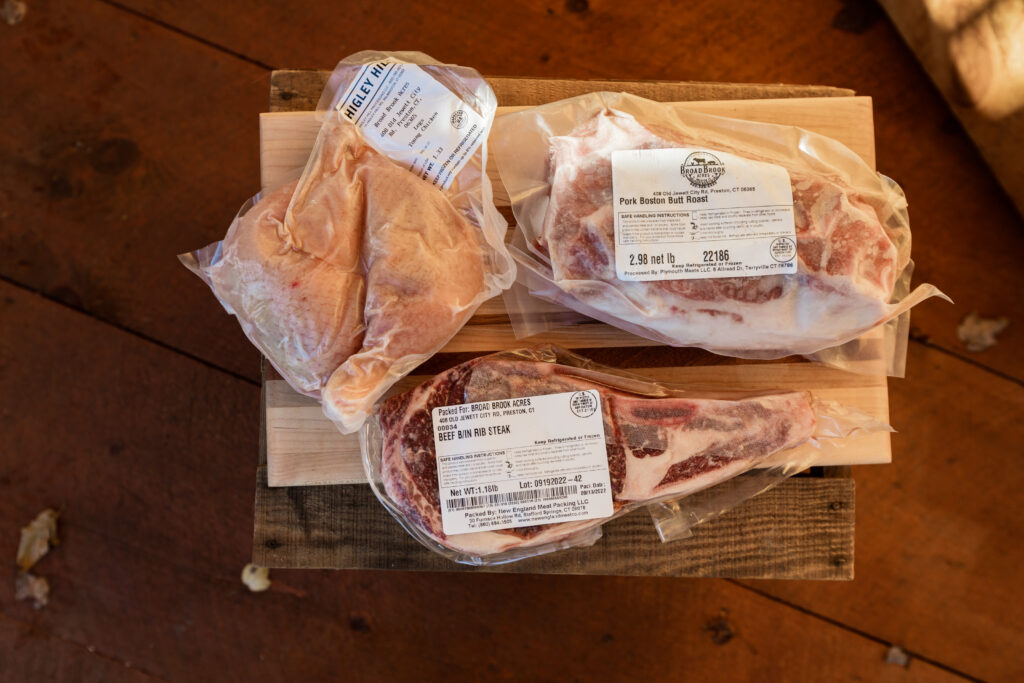
Across Connecticut, livestock farmers are raising thousands of animals from the traditional beef, poultry, and pork to a bit more exotic such as bison and emu.
While traditional CSAs provide different types of vegetables, meat CSAs offer a variety of meat cuts such as chops, sausages, ribs, roasts and ground meat. The program may provide a few pounds of meat every week, or monthly pickups with a larger selection.
CT Grown livestock producers are open to sharing the sustainable practices they use to raise their animals. Some practices include grass-fed diets, pasture-raised practices which are said to yield a higher nutritional value and better taste.
Meat CSAs can work particularly well for those who are worried that their CSA shares will be inconsistent or that they will let food go to waste. Since meat CSAs are based on weight, you’ll be guaranteed a set amount of food with each share. Any meat you don’t use can be stored in the freezer until you need it.
Community Supported Fisheries (CSF)

Similar to meat CSAs, Community Supported Fisheries (CSF) programs let you enjoy fresh seafood soon after it has landed on Connecticut’s shores. In exchange for your upfront payment, you’ll get regular shares of aquaculture products like fish, shellfish, and kelp.
CSF programs work to make these products available to the consumer as quickly as possible. Seafood is purchased from local fishermen, then processed and made available for pickup.
While traditional CSAs help farmers cover the costs of each new growing season, CSFs help CT Grown aquaculture producers to pay for expenses like boat repairs and the purchase of new gear.
Flowers and seeds
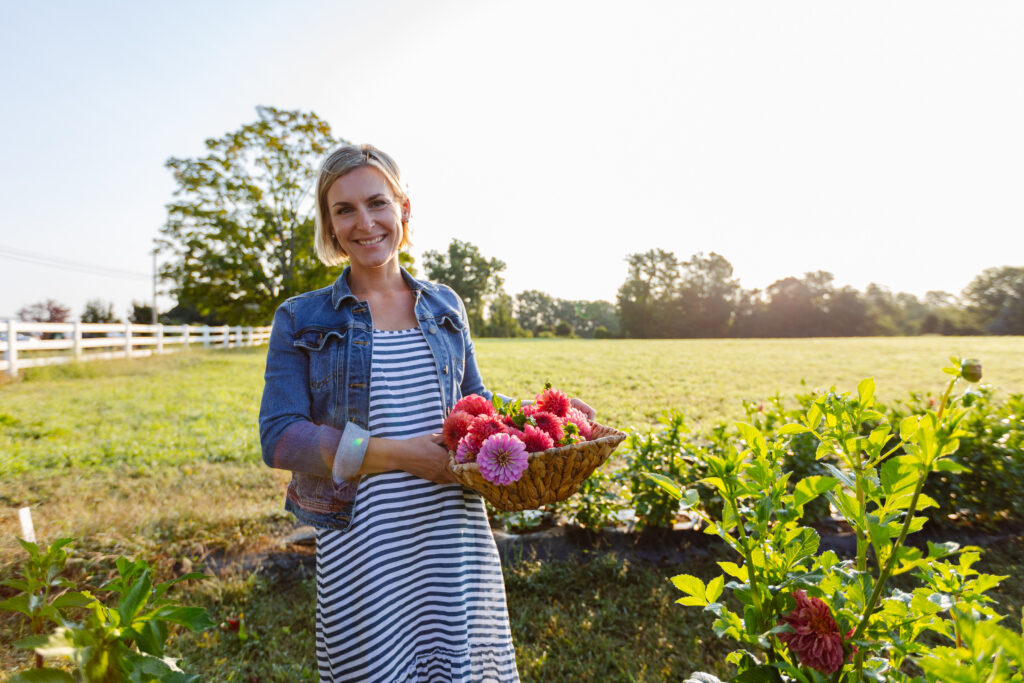
Countless families have picked up locally produced flowers to add beauty and fragrance to their home. If you want to keep these displays as a more consistent part of your home decor, you might consider a flower CSA.
Flower CSAs offer bouquets of flowers with an ever-changing variety based on what’s in season. You may have the option of picking your own flowers, and some CSAs even provide seed packets so you can grow additional lovely blooms in your own garden.
This type of CSA gives you the freshest flowers possible, since you’ll be getting them directly from the farm. It can also be a good option for those looking to try out a CSA for the first time, as flower CSAs tend to be less expensive and cover a shorter span of time.
Subscriptions and customizable shares
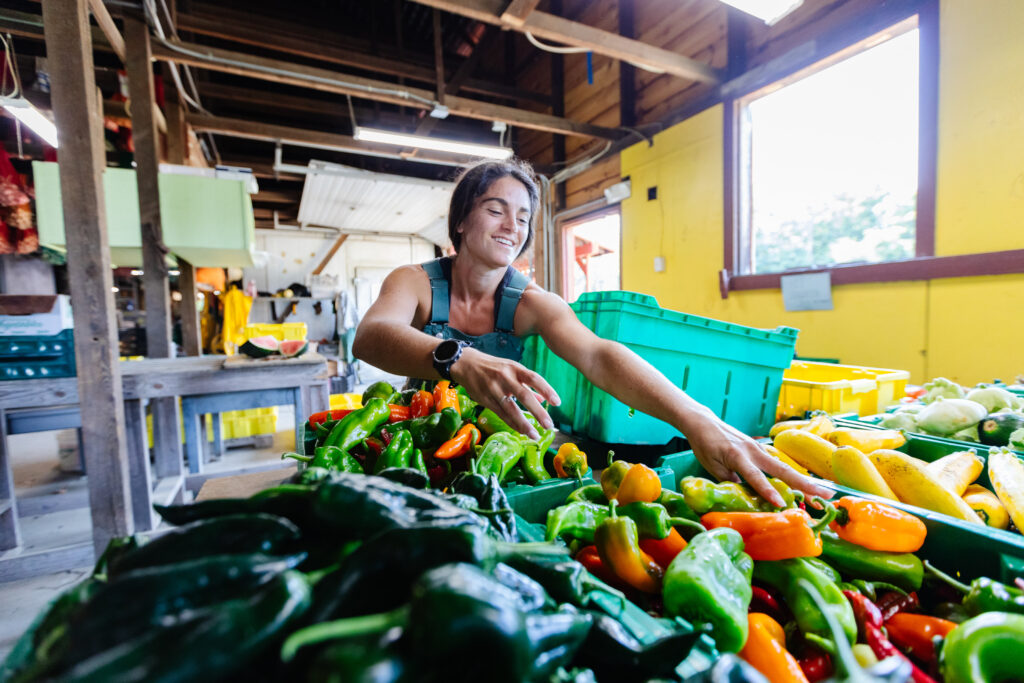
Farms can offer programs that are similar to CSAs but provide more opportunities for flexibility and customization. Vegetable subscription boxes let you choose how frequently you receive your produce and how many weeks your subscription will run. CSAs also may have a “market style” setup, allowing you to pick and choose what you’d like to take home.
Programs may involve collaborations between multiple producers in order to provide a range of goods. Some Connecticut dairy farms have started subscription delivery services that not only bring milk to your doorstep, but also goods like eggs, granola, and breads.
If you frequently use a certain commodity, you may find a farm offering a CSA exclusively for this item. These specialty CSAs include items like bread, cheese, eggs, honey, maple syrup, milk, and mushrooms.
CSAs sometimes invite you to pick your own produce as part of the experience. Instead of getting a preselected portion of fruits or vegetables, you might be invited to head into the fields to take your pick of items like berries, flowers, herbs, hot peppers, snap peas, or tomatoes.
To learn more about how CSAs work, visit our previous blog. To find a CSA near you, visit this map.